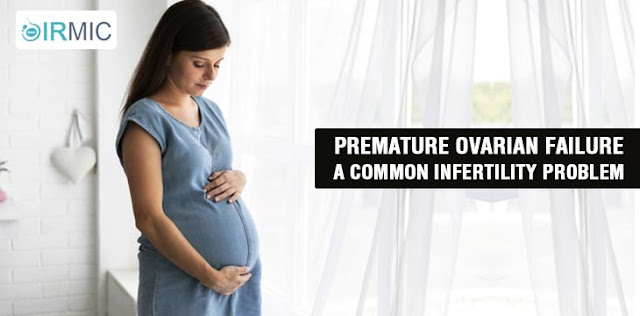Premature Ovarian Failure A Common Infertility Problem
Menopause is the general suspension of ovarian function when estrogen
creation decreases and menstruation terminates. Commonly, menopause
happens between 42 and 56 years of age. Yet, nearly one percent of women
under the age of 40 reveals early menopause, also termed premature
ovarian failure (POF).
They are fastened to the uterus one on each surface, near the fimbriae or finger-like possibilities of the fallopian tubes. About once a month, a developed egg is discharged by one of the ovaries. The fimbriae of the fallopian tubes clear over the ovary, pick up the egg and send it traveling down the tube approaching the uterus. If breeding occurs, this normally happens in the tube, the resulting embryo (fertilized egg) proceeds traveling to the uterus and can implant in the endometrium (uterine lining).
As menopause shows, the ovaries become less and less sensitive to FSH and LH. To remunerate for this loss of ovarian response, the pituitary emits much higher levels of both FSH and LH into the bloodstream. In initial menopause, as in normal menopause, the ovaries create little estrogen, and the levels of FSH and LH in the bloodstream are constantly high.
Content Source : https://drrksharmaivf.in/blog/premature-ovarian-failure-a-common-infertility-problem/
Female Reproductive System & Causes Of Premature Ovarian Failure
The repeated menstrual phase is the result of a complex process that qualifies a woman’s body for pregnancy. The hypothalamus and pituitary glands, found in the brain, help organize the events leading to ovulation. The hypothalamus spurs the pituitary to free follicle-stimulating hormone (FSH) and luteinizing hormone (LH). These hormones are released into the bloodstream and incite the increase and maturation of eggs (oocytes) and the ovaries.They are fastened to the uterus one on each surface, near the fimbriae or finger-like possibilities of the fallopian tubes. About once a month, a developed egg is discharged by one of the ovaries. The fimbriae of the fallopian tubes clear over the ovary, pick up the egg and send it traveling down the tube approaching the uterus. If breeding occurs, this normally happens in the tube, the resulting embryo (fertilized egg) proceeds traveling to the uterus and can implant in the endometrium (uterine lining).
As menopause shows, the ovaries become less and less sensitive to FSH and LH. To remunerate for this loss of ovarian response, the pituitary emits much higher levels of both FSH and LH into the bloodstream. In initial menopause, as in normal menopause, the ovaries create little estrogen, and the levels of FSH and LH in the bloodstream are constantly high.
Genetic Factors Impacting (POF)
Premature menopause or premature ovarian failure (POF) may happen due to genetic factors, autoimmune ailments, or elimination of the ovaries by radiation therapy, chemotherapy, surgery, toxins, or unexplained factors. Each of these circumstances ends in the exhaustion of eggs and loss of estrogen and progesterone creation by the ovaries. For more knowledge on chemotherapy and radiation treatment’s influence on the reproductive role, there is big set of info given in Fertility After Cancer Treatment. Women have two X chromosomes and guys who have one X chromosome and one Y chromosome. The X and Y chromosomes are termed sex chromosomes. If a woman is missing all or part of an X chromosome, a normal ovarian role may be interrupted.Blood Test Discussing Abnormalities In Chromosomes
A karyotype is a blood test that examines and detects abnormalities in the chromosomes. In Turner’s Syndrome, the female is born with only one X chromosome. The ovaries are meager, do not contain eggs, and do not generate estrogen. Women with Turner ’s syndrome normally requires to take estrogen to grow breasts, have menstrual periods, and keep normal bone strength, hindering osteoporosis. In exceptional cases, ladies with Turner ’s syndrome may ovulate and menstruate immediately, but eventually, they will all develop early menopause. In addition to Turner’s Syndrome, early menopause may be induced by an extra X chromosome or other sex chromosome deformities.Destruction Of The Ovaries
The ovaries may be impaired or damaged by radiation therapy, chemotherapy, surgery, or certain generative tract infections. The significance of radiation frequently associated with diagnostic x-rays that a woman undergoes during her life will not induce early menopause. Very large amounts of radiation used to stop the maturity of cancer cells can damage the ovaries and end in early menopause. In some sorts of cancers, it may be welcome to shield or move the ovaries when radiation treatments are carried out to preserve ovarian role. Many of the chemotherapeutic medicines used to destroy cancer cells may also damage normal cells, such as eggs inside the ovaries.Reference
If you have issues regarding early menopause, don’t get stressed rather meet Dr. RK Sharma, at Institute of Reproductive Medicine and IVF Centre is the Best IVF Centre in Delhi NCR.Content Source : https://drrksharmaivf.in/blog/premature-ovarian-failure-a-common-infertility-problem/



Comments
Post a Comment